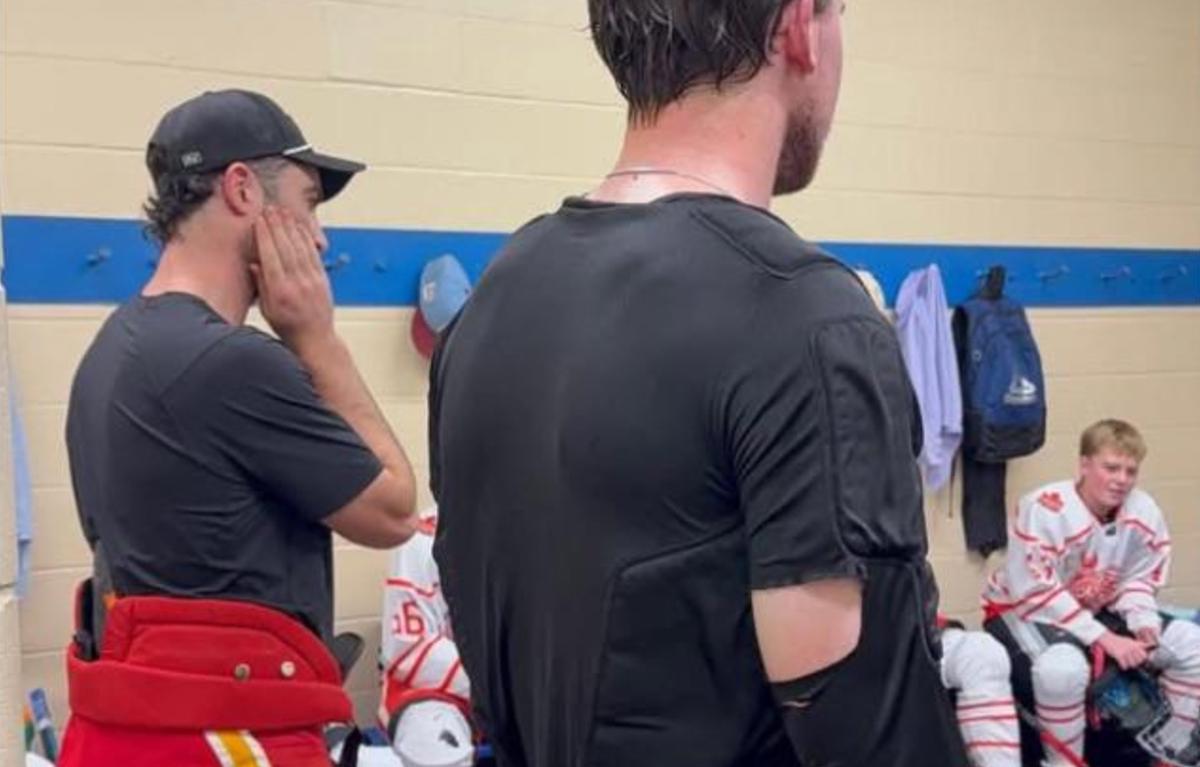
Two 2018 WJC players caught in new controversy as NHL eligibility kicks in
Video has emerged, sparked backlash and renewed debate over how hockey handles accountability.
On the very first day that acquitted players from the 2018 WJC sexual assault trial became eligible to return to NHL contracts, a new flashpoint has emerged. A video from last week has been circulating showing Carter Hart and Dillon Dube dropping into a youth team’s locker room in Penhold, Alberta, exchanging high-fives, asking who they were playing, and signing autographs as parents and coaches applauded.
While it looked spontaneous and innocent, given their history, it’s reckless.
For those unfamiliar, Hart and Dube were among five former 2018 World Junior roster members charged in a London, Ontario, sexual assault case following a Hockey Canada gala, along with Alex Formenton, Michael McLeod and Cal Foote. All five were acquitted earlier this summer. Despite that, they still face suspensions from Hockey Canada-run competitions and programs. So for these two to appear in a youth hockey setting, especially one connected to Canada’s development system, raises some serious red flags.
To be clear: the team in Penhold is part of the Premier Hockey League, a Western Canada league that operates outside Hockey Canada’s jurisdiction. So technically, Hart and Dube did not break any formal rules. But the optics are disastrous, and for parents, coaches, or local hockey officials to green-light that appearance is tone deaf at best. Any adult involved should be held accountable.
Meanwhile, Hart is on the cusp of re-entering the NHL. He’s eligible to sign as of today, barred from playing until December 1. Reports suggest he might land a deal with a ~$2 million AAV figure, per insider Frank Seravalli.
Dube’s path back to the NHL is murkier. Rumors once linked him to Toronto, but a crowded roster and potential public backlash might stall any move.
It is a fact that their acquittal grants them the legal freedom to pursue pro careers. But stepping into youth locker rooms in posh community moments, right as they re-enter the public spotlight, is something else entirely.
Hockey Canada may not have direct jurisdiction here, but its reputation is on the line. Communities, parents, and local hockey bodies should question how this was allowed, and what message is being sent to the next generation of hockey players.
And perhaps some NHL teams considering signing them could have a change of hearts…
Newsletter
Get the latest news and updates directly in your inbox.